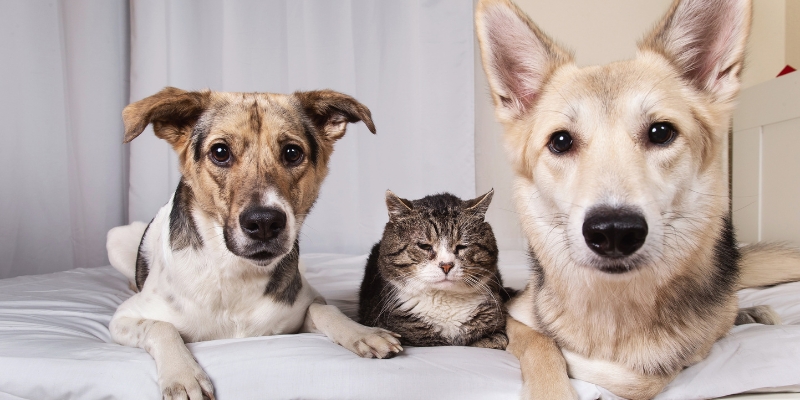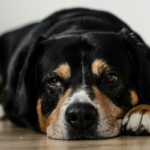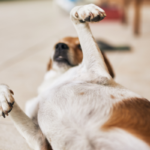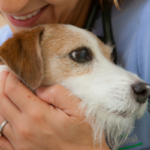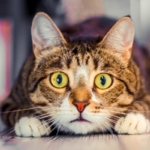Whilst annual rechecks are sufficient for monitoring the health of most young to middle-aged pets, our team recommends 6-monthly rechecks for cats and dogs over eight years of age. Why? Read on to find out!
Aging rate
It is thought that a one-year-old medium-sized dog is the equivalent of a 15-year-old human (i.e., a teenager!). We believe a two-year-old dog is approximately equivalent to a 24-year-old human. After that, each year of a dog’s life equals roughly five human years.
This age rate means that at eight years old, a medium-sized dog would be the equivalent of a 51-year-old human, and one year later, they would have aged to around 56 years old!
Whilst some people may be lucky not to experience any health problems from 51 to 56 years old, we’re betting that most would benefit from a couple of proactive medical check-ups during this period. The same goes for older pets too.
Weight monitoring
A few of the most common health issues in older cats, such as chronic kidney disease, an overactive thyroid, or gut problems, may cause only subtle outward symptoms at the beginning until these conditions reach a moderate stage of severity.
However, in many cases, gradual weight loss is seen relatively early in these disease processes. A 6-monthly health check (including a weigh-in and a body condition check) is a great way to monitor an older cat’s health.
Monitoring joint comfort
Most vets agree it’s likely that arthritis will affect 80-90% of elderly pets in at least one joint, causing stiffness and pain. Rather than exhibiting overt limping, affected pets usually show more subtle symptoms, such as reduced activity or playfulness, changes in behaviour, or hesitation before jumping up or climbing stairs.
Our vets can check your pet’s joints for early signs of arthritis and recommend various joint health support options to keep them feeling their best.
Checking for lumps
Lumps are common in older pets but may not always be obvious under a thick furry coat. As part of your pet’s 6-monthly health check, our vets can check for any new masses that might have developed on your pet.
Early detection and treatment of cancerous lumps give your pet the best chance of a complete cure.
Maintaining dental health
With dental disease being one of the most prevalent health issues in pets and progressively more common with age, your older pet will benefit from 6-monthly dental health checks.
With advice on home dental care and regular dental cleanings as required, we can help minimise any dental discomfort or tooth extractions for your pet and keep their breath smelling sweet.
Assistance with grooming
Older cats and dogs tend to wear their claws down more slowly and can be at risk of painful claw overgrowth and (in the case of older dogs) a tendency to slip on smooth floors. Long-haired elderly cats may also have trouble keeping up with self-grooming requirements. They may need some assistance to prevent matting.
As part of a general health check, our vets can advise how best to keep your pet clean and comfortable.
With 6-monthly checks, we can proactively maintain your pet’s overall health and quality of life and treat any developing issues as early as possible, helping them live their best lives throughout all life stages.

